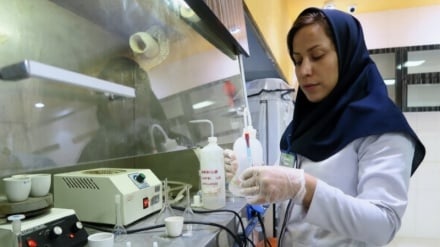Over 2,500 Iranian researchers among world’s top scientists
-

Over 2,500 Iranian researchers among world’s top scientists
Pars Today – According to the latest list of the world’s top 2% of researchers, more than 2,500 Iranian scholars have been recognized among the most influential scientists globally.
Each year, a team of researchers from Stanford University publishes a list of the world’s top scientists using data from the Scopus database and Elsevier publications. Known as the “Top 2% Researchers” list, it aims to identify and highlight scholars whose scientific work has received the highest impact and citations within the academic community.
Each year, this research team publishes two types of “Top 2% Researchers” lists. The first is the one-year performance list, which ranks researchers based on the impact of their work within a single year. The second is the career-long performance list, which evaluates a researcher’s work from the start of their academic career through the most recent year, reflecting their long-term influence in the scientific community.
In the latest Top 2% Researchers list (2025), out of 236,313 researchers ranked by one-year performance, 2,533 Iranian scholars are included. This represents an increase of 207 Iranian researchers compared to last year’s list.
In this year’s (2025) Top 2% Researchers list based on career-long performance, 230,333 researchers from around the world are included, of whom 1,201 are Iranian. The number of Iranian researchers on this career-long performance list has increased by 183 compared to last year. A five-year trend analysis also shows that the number of top Iranian researchers has nearly tripled over this period.
How top 2% researchers are selected?
In this ranking, each researcher is assigned a composite metric called the c-score, which takes into account six different criteria, including total citations, h-index, and citations of papers where the researcher is first, last, or sole author.
Researchers are then selected for the list if they rank within the top 2% of their specific field and are also among the top 100,000 researchers globally based on their c-score.
In this metric, researchers are not ranked solely by the number of publications or by citation counts alone; rather, a combination of these indicators is used. As a result, a researcher with fewer publications but higher-cited papers may achieve a higher c-score.


